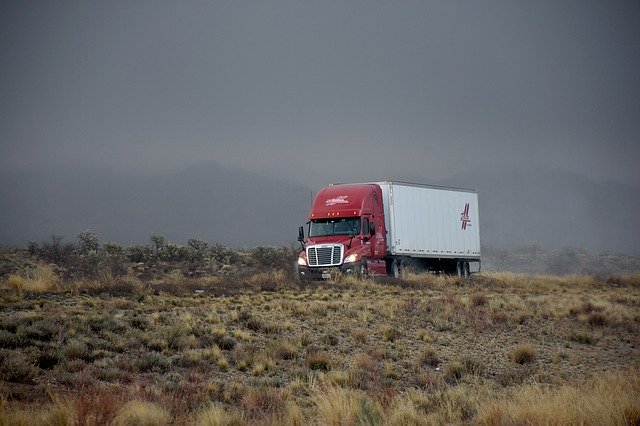Table of Contents
What Is Engine Braking and Should You Do It?
You may have heard the term engine braking but don’t really know what it means. You may have also heard that engine braking is illegal, but why? So what is engine braking?
Engine braking (like the name implies) is when you use your engine to bring your vehicle to a stop instead of using your foot brake (which uses brake rotors and brake pads). Engine braking is caused by the vacuum inside of an engine that’s created when your throttle closes after you let off the gas pedal.
Essentially every time you let your foot off of the gas you are applying the effect of engine braking. Engine braking can be used in both manual and auto transmissions but the effect is more pronounced in manual transmissions, especially when downshifting. But why?
Engine Braking In A Manual Vs An Automatic Transmission?
When you let off the gas in a vehicle equipped with an automatic transmission the vehicle will coast for a while until you eventually come to a stop.
When you let off the gas in a vehicle equipped with a manual transmission the vehicle will lurch forward and begin to come to a stop much quicker than an automatic transmission because the clutch is still engaged.
To coast in a manual transmission car you have to push in the clutch to disengage the clutch or put your car in neutral.
Automatic transmissions don’t use a clutch like manual transmissions (automatic transmissions use clutch packs) and do a much better job at coasting once you let off the gas pedal.
But why can engine braking be illegal? Keep reading to find out.
Is Engine Braking Illegal?
Engine braking on its own isn’t illegal, however, the noise produced by some semis can be illegal depending on local laws and regulations.
Engine braking in cars, light trucks, and motorcycles do not create a loud noise, but engine braking in semis does omit loud noises that some people think is a nuisance.
That is why engine braking is illegal in some areas because of the sound pollution omitted by semis when engine braking.
On semis, their diesel engines have a compression release engine brake commonly known as a Jake brake. When semis use their Jake brake to slow down it emits very loud noises from the semi that sounds similar to a very loud air compressor.
Check out the video below to see what a Jake brake being applied sounds like. Have you heard that before?
Compression release engine braking or a Jake brake on diesel semis is what is illegal in some areas. Engine braking on gasoline engines and light diesel truck engines will not output a loud noise, so you shouldn’t be pulled over for engine braking in one of those vehicles. Even then applying a Jake brake is only illegal in some areas where it’s specifically posted like on the sign above. So the vast majority of people shouldn’t we worried about getting pulled over for engine braking.
What Are the Benefits of Engine Braking?
Engine braking can be beneficial because you aren’t using your brakes to bring your vehicle to a stop which can prevent some wear and tear on your car’s brakes. When you use engine braking to bring your car to a stop the car’s drivetrain is what is used to slow down the car.
Engine braking can be accelerated by downshifting to a lower gear. In a manual transmission this is easy to do, just downshift to the lower gear.
With an automatic transmission, you will need to move your gear lever from the drive position to gear position 2 to tell your automatic transmission to downshift to second gear.
On some cars that are equipped with paddle shifting, this process is easier because you can just click the paddle to downshift and bring your car to a stop quicker.
What Are the Drawbacks of Engine Braking?
While engine braking can help save your vehicle’s brake pads and rotors from wear and tear it can cause more wear and tear on your car’s drivetrain, specifically the clutch and clutch packs.
To me, it makes more sense to slow down your car with your car’s brakes rather than using the drivetrain and clutch. What is more costly to replace your clutch or your brake pads and rotors?
For most cars, you will spend about $1,000 to replace your clutch. You can buy a set of brake pads for under $50 for most cars.
Replacing brake pads is also something that can be done by a lot of people in their garage. To replace a clutch in a car or truck you usually have to remove the whole transmission from the back of the engine to be able to access the clutch to replace it.
Working on trucks can be very expensive because of how much replacement parts are. But why are trucks so expensive to begin with? Check out my other article to find out why.
Engine Braking in the Snow
Is engine braking safe in snowy conditions? The simple answer is yes, engine braking can be safer than using your foot pedal to bring you to a stop because it will be less likely to cause your wheels to lock up causing a slide.
Engine braking in the snow will slow you down more gradually than if you were to press on your brake pedal. This is key when driving in snow and icy conditions because you don’t want to make any sudden inputs, otherwise, you have the chance of sliding out of control.
Engine Braking on a Motorcycle
If you’ve ever ridden on a motorcycle you know how pronounced engine braking can be. As soon as you let off the throttle the motorcycle will lurch forward and want to come to slow to a stop.
If you engage the clutch using your hand controls this will allow you to coast on the motorcycle but this is not advised. Engine braking is just something that you should get used to when riding on a motorcycle.
Related Questions
Can You Engine Brake in Automatic Transmission Cars? Yes, you can engine brake in automatic transmission cars but it requires a bit more work than in a manual.
If you want to engine brake in a car equipped with an automatic transmission you will need to be able to manually adjust your gears to downshift to a lower gear.
Your automatic transmission will automatically downshift for you but only when it senses that you have dropped below a certain speed.
To bring your car to a stop quicker using engine braking you would need to move your gear selector from the drive gear to 2 or second gear if available.
If your car is equipped with paddle shifting this process is easier because you can just select the paddle to bring your car into a lower gear without having to mess with your gear selector in your center console.
Does Engine Braking Use More Gas? Engine braking does not use gas to bring you to a stop. After you lift your foot from the gas pedal your car’s engine will stop injecting fuel into the engine cylinders.
Is Downshifting Better Than Braking? That’s debatable, while you will preserve your brakes engine braking will cause more wear and tear on your clutch (or clutch packs in an automatic) and drivetrain.
In my opinion, I’d rather accelerate the wear on my brakes over my clutch and transmission because brake pads and rotors cheaper to replace and are meant to be replaced over time.
Replacing the clutch in your car or rebuilding a transmission will cost significantly more than replacing rotors and brake pads.
Doe Braking Use Fuel? No, using your foot pedal to brake does not use fuel. As soon as you lift your foot off of the gas pedal your engine will cut off fuel from going into your engine.


